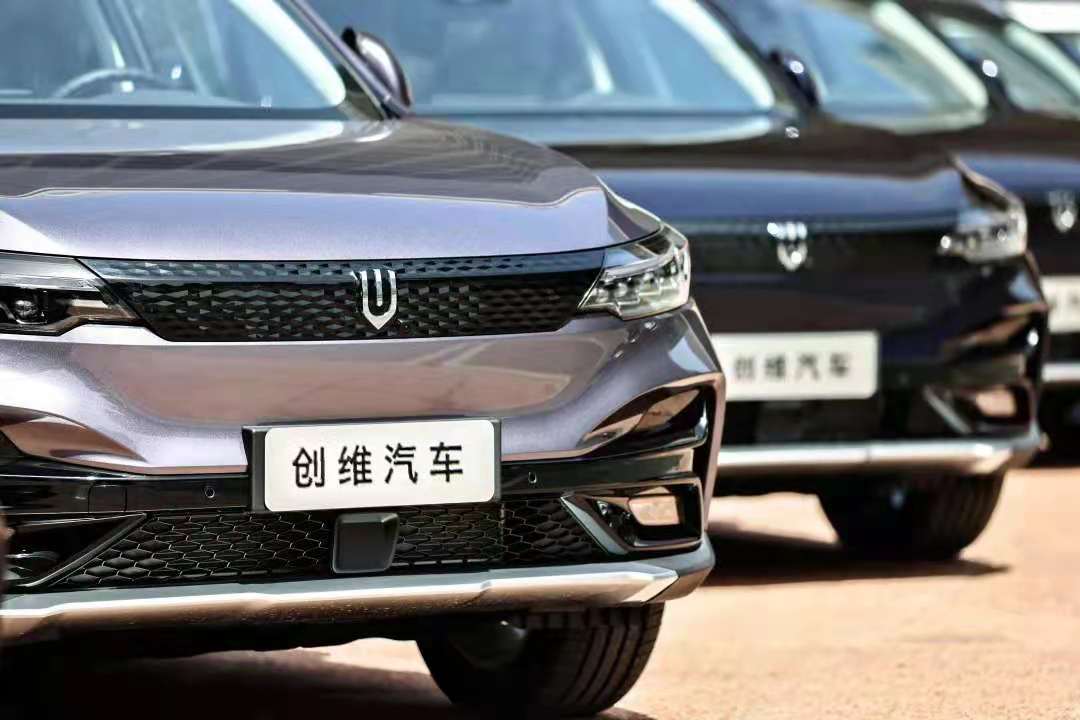After BYD and Long March Motors, another car company official announced to stop producing fuel vehicles.
In the evening of June 14, Hanma Technology announced that the Board of Directors had reviewed and passed the Proposal on the Transformation of New Energy to Stop Production of Fuel Vehicles. In order to actively respond to the national strategic objective of "carbon peaking and carbon neutrality" and accelerate the new energy process of the company's products, according to the company's strategic development needs, the company will stop the production of traditional fuel vehicles in December 2025. The company will focus on new energy and clean energy vehicle business such as pure electric, methanol power, hybrid power, hydrogen fuel cell, etc.

As for this business transformation, Hanma Technology said that it would continue the production of traditional fuel vehicles before December 2025, and do a good job in the withdrawal of traditional fuel vehicles and the undertaking of new energy and clean energy vehicles. At the same time, the company will continue to produce and supply parts for traditional fuel vehicles, and continue to provide after-sales service guarantee for existing customers of traditional fuel vehicles.
Affected by this news, on June 15, Hanma Technology rose by the limit, closing at 9.48 yuan/share, with a total market value of 6.203 billion yuan.
In this regard, Hu Qimu, the chief researcher of Sinosteel Economic Research Institute, told the reporter of Securities Daily that first, according to the process of "carbon peaking and carbon neutrality", the automobile industry is facing the transformation from traditional fuel vehicles to new energy vehicles; Second, the current international oil price is rising, the cost of fuel vehicles is rising, and the substitution effect of new energy vehicles on fuel vehicles is increasing. In addition to the policy level to encourage the development of new energy vehicle industry and the introduction of new energy vehicle consumption policies, it is inevitable for automobile enterprises to increase their investment in new energy vehicles.
Hanma Technology stops the production of fuel vehicles

On April 3, the official announcement of BYD to stop production of fuel vehicles caused heated discussion in the industry, and the company became the "first traditional car company in the world to officially announce the production of fuel vehicles".
Following BYD, Hanma Technology also joined this list.
As for stopping the production of fuel vehicles, Hama Technology said that the company's business is concentrated on new energy business, which may lead to the lack of diversification of the company's business. If the new energy industry is not prosperous enough, it may have a negative impact on the company's ability to resist risks. The announcement shows that from January to May 2022, the sales of new energy vehicles of Hanma Technology will be 1177, accounting for 41.23% of the company's total sales in the same period; The sales volume of traditional fuel vehicles was 1678, accounting for 58.77% of the company's total sales in the same period.
There are also concerns in the industry that after the production of fuel vehicles is stopped, the vehicle enterprises will let suppliers produce a batch of parts and save them in the warehouse, so as to provide maintenance services for existing owners. But it is certain that once the production of this model is stopped, the maintenance cost of this model will increase year by year. This is the market rule. On the one hand, there is storage cost for parts stored in the warehouse; On the other hand, the number of spare parts in the market decreases, and the cost price will become higher and higher due to the role of the market economy.
However, this is the pain that enterprises must face in the process of transformation. "In the heavy truck industry market where Hanma Technology is located, new entrants have limited development opportunities, and industry competition is mainly reflected among existing enterprises. The company's heavy truck, engineering vehicles and other new energy is the future development direction." Zhang Xiang, president of the New Energy Vehicle Technology Research Institute of Jiangxi New Energy Technology Vocational College, told the Securities Daily.

The transformation of new energy is the general trend
From the perspective of industry segmentation, in addition to Hanma Technology, on May 27, Changzheng Auto, the auto brand of Great Wall Motors, officially announced that it would stop production of fuel vehicles from June 5, and shift from traditional energy to new energy technologies such as electric and hydrogen fuel cells.
In terms of product layout, Long March Automobile mainly focuses on three product lines: new energy city logistics vehicles, intelligent sanitation vehicles and hydrogen fuel heavy trucks.
New energy heavy trucks are slowly rising. According to the latest data from the First Commercial Vehicle Network, 1825 new energy heavy trucks were sold in the domestic market in May (excluding export and military vehicles), up 63% month on month and 383% year on year.
According to the research report of Northeast Securities, the sales of new energy heavy trucks are mainly benefiting from the promotion of policies. Vehicle enterprises with a dual carbon background have increased the layout of new energy heavy trucks. Pure electric heavy trucks, especially heavy trucks with power replacement, can meet the use requirements in closed scenarios such as ports and steel mills. It is expected that the penetration rate of new energy heavy trucks will continue to increase.
In this regard, Hu Qimu said that the current market is just in need of new energy commercial vehicles. Because in many big cities, there are restrictions on large logistics vehicles. For example, in Beijing, if it is a fuel vehicle, it can hardly be used in urban areas during the day, but there are no such restrictions on new energy vehicles. Therefore, as long as carbon emissions become a rigid constraint, the demand structure must be changed, and the corresponding industrial supply side must also seize the opportunity to adapt to the change, otherwise the products will not be sold.
In fact, for traditional fuel vehicle enterprises, the transition to new energy has become a general trend. It is understood that Audi, Honda, BMW MINI and others have also released the news of reducing fuel vehicles and expanding the production of new energy vehicles in the future.



